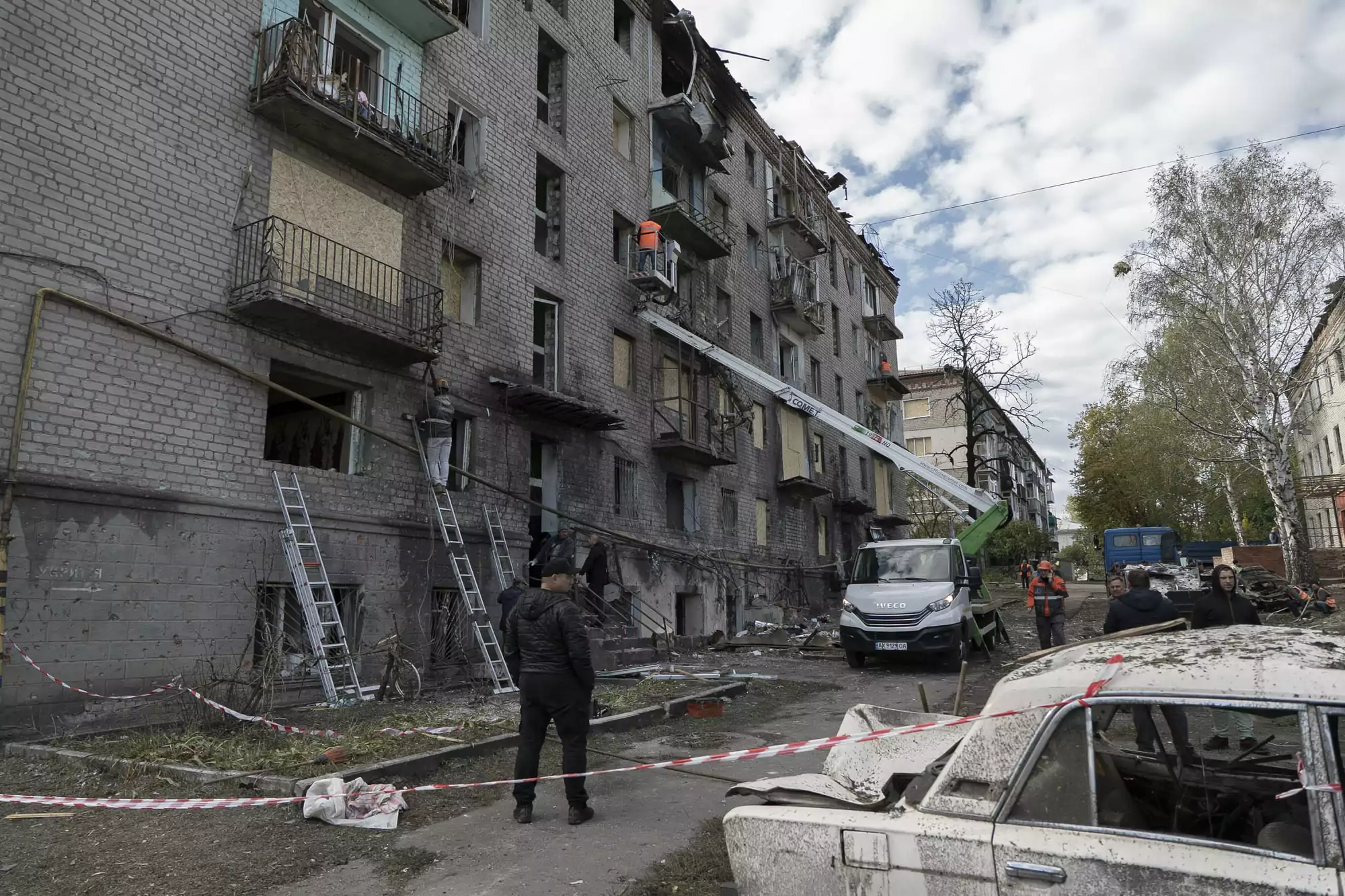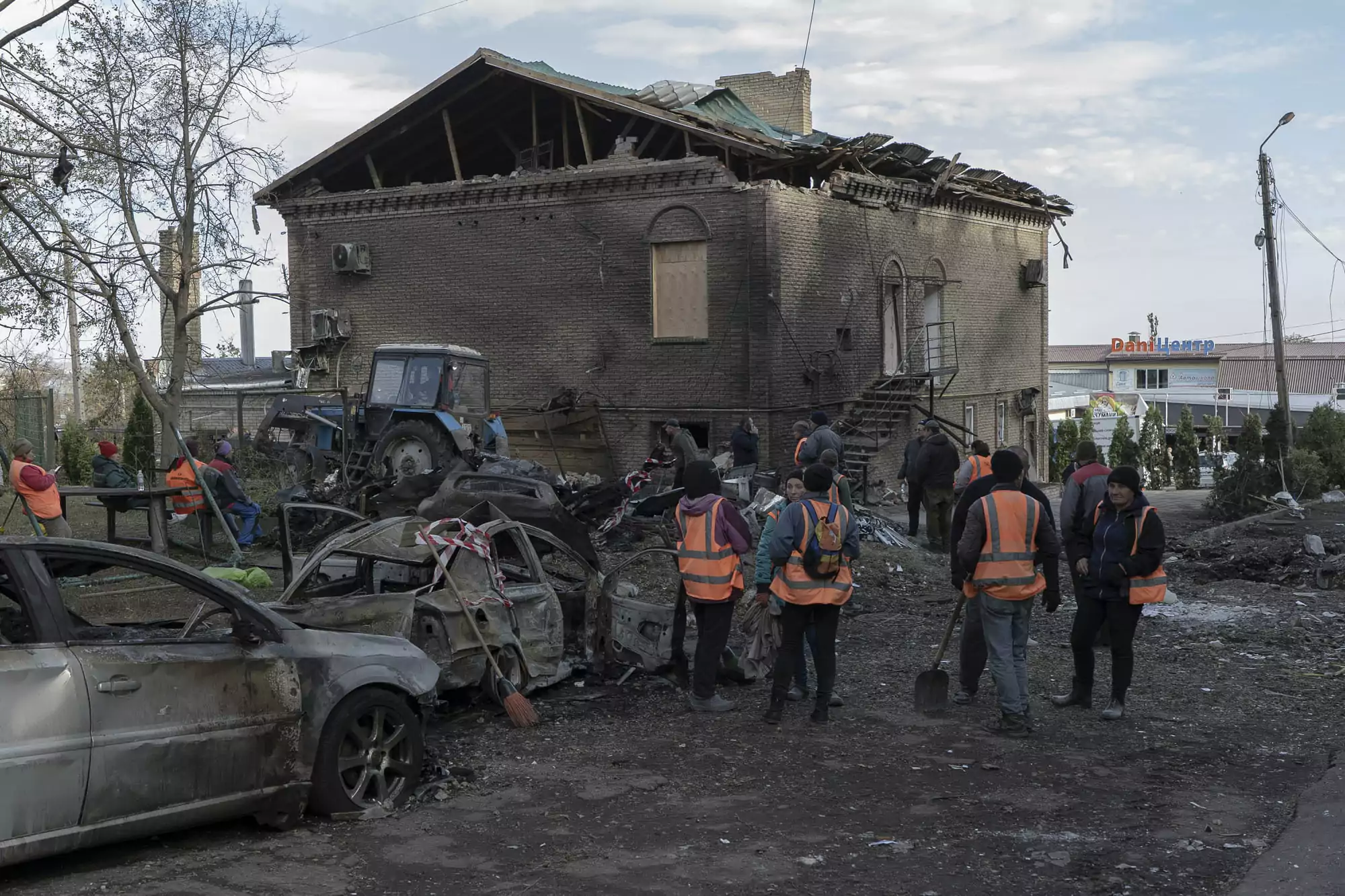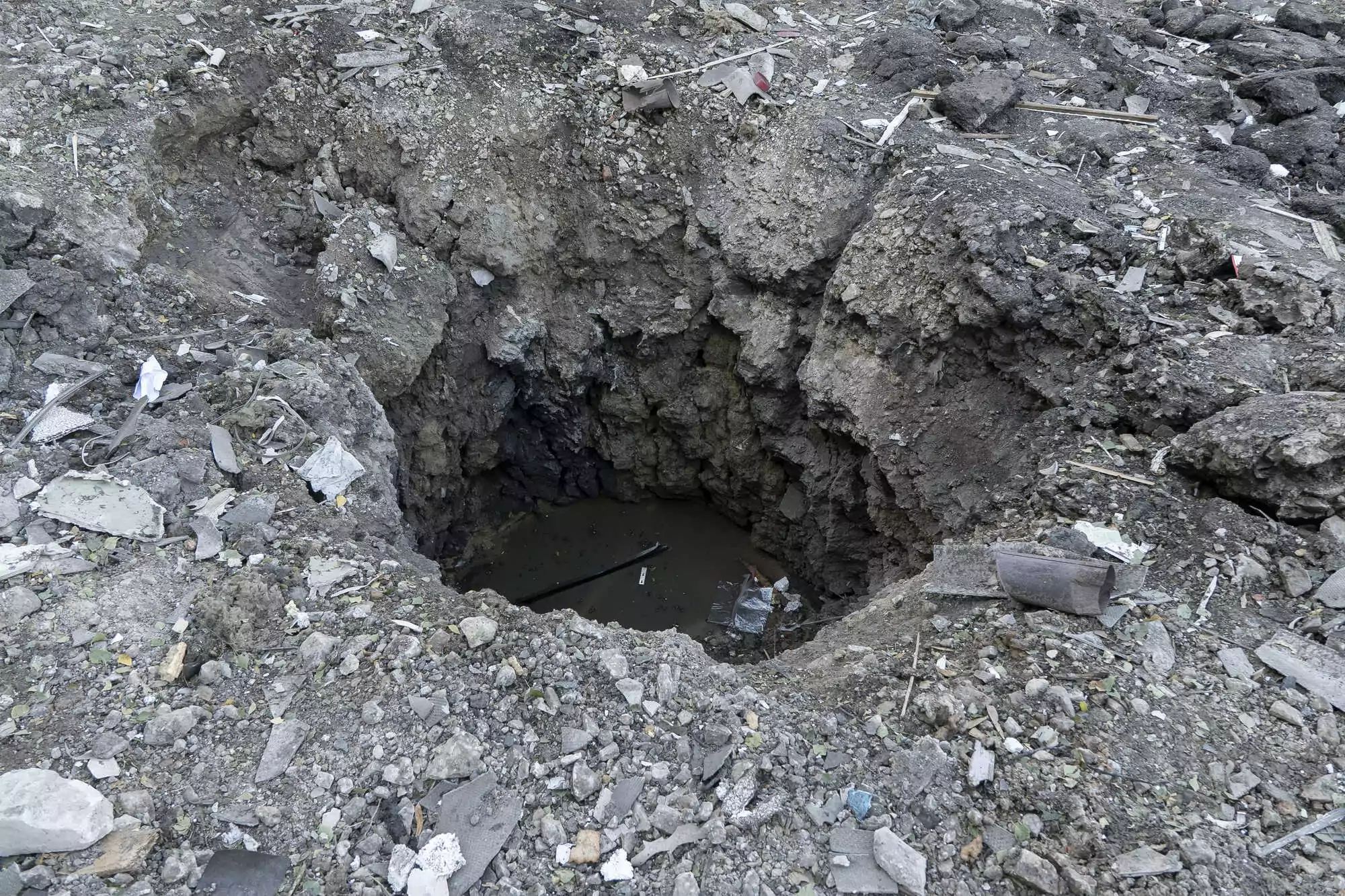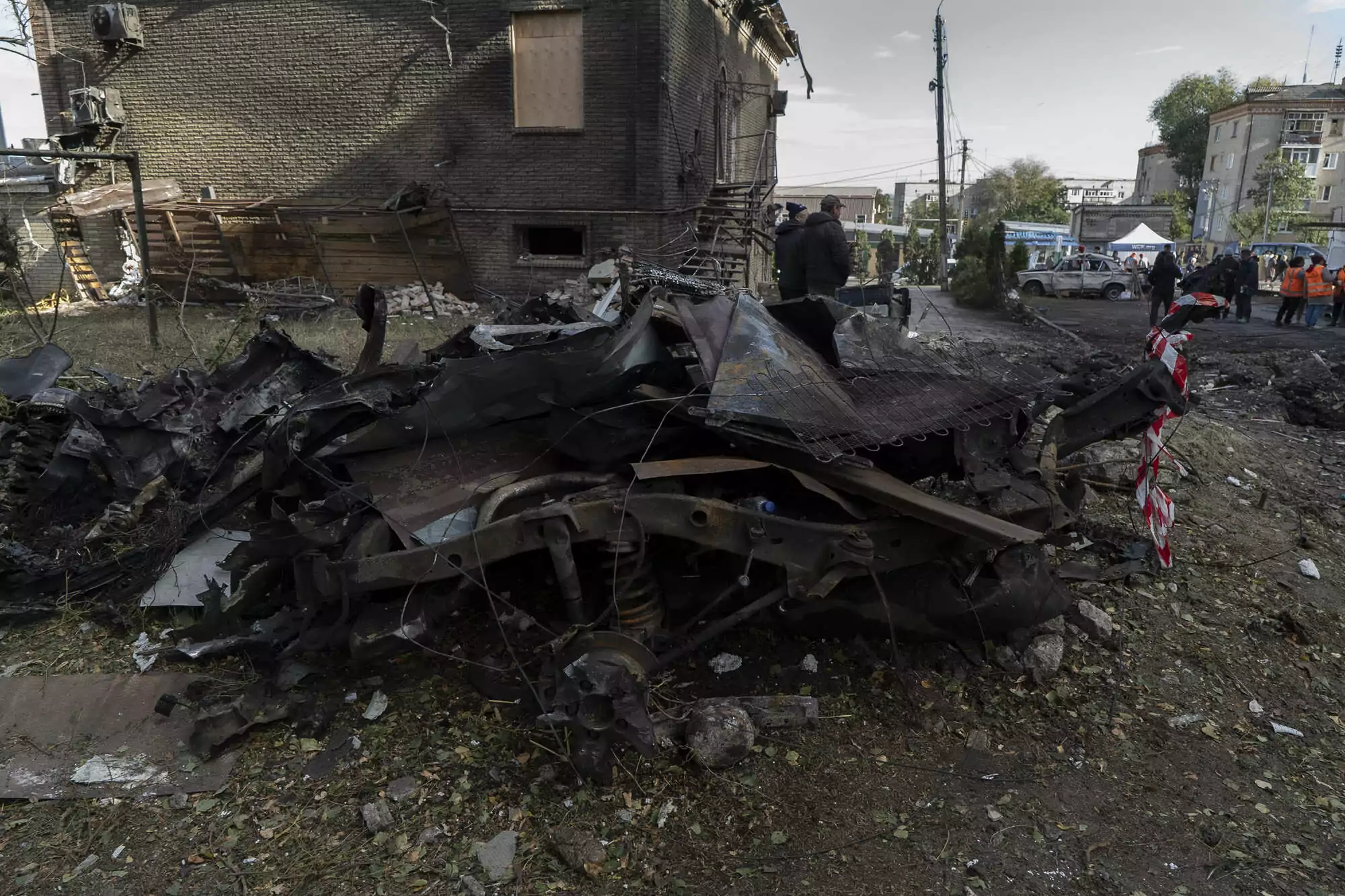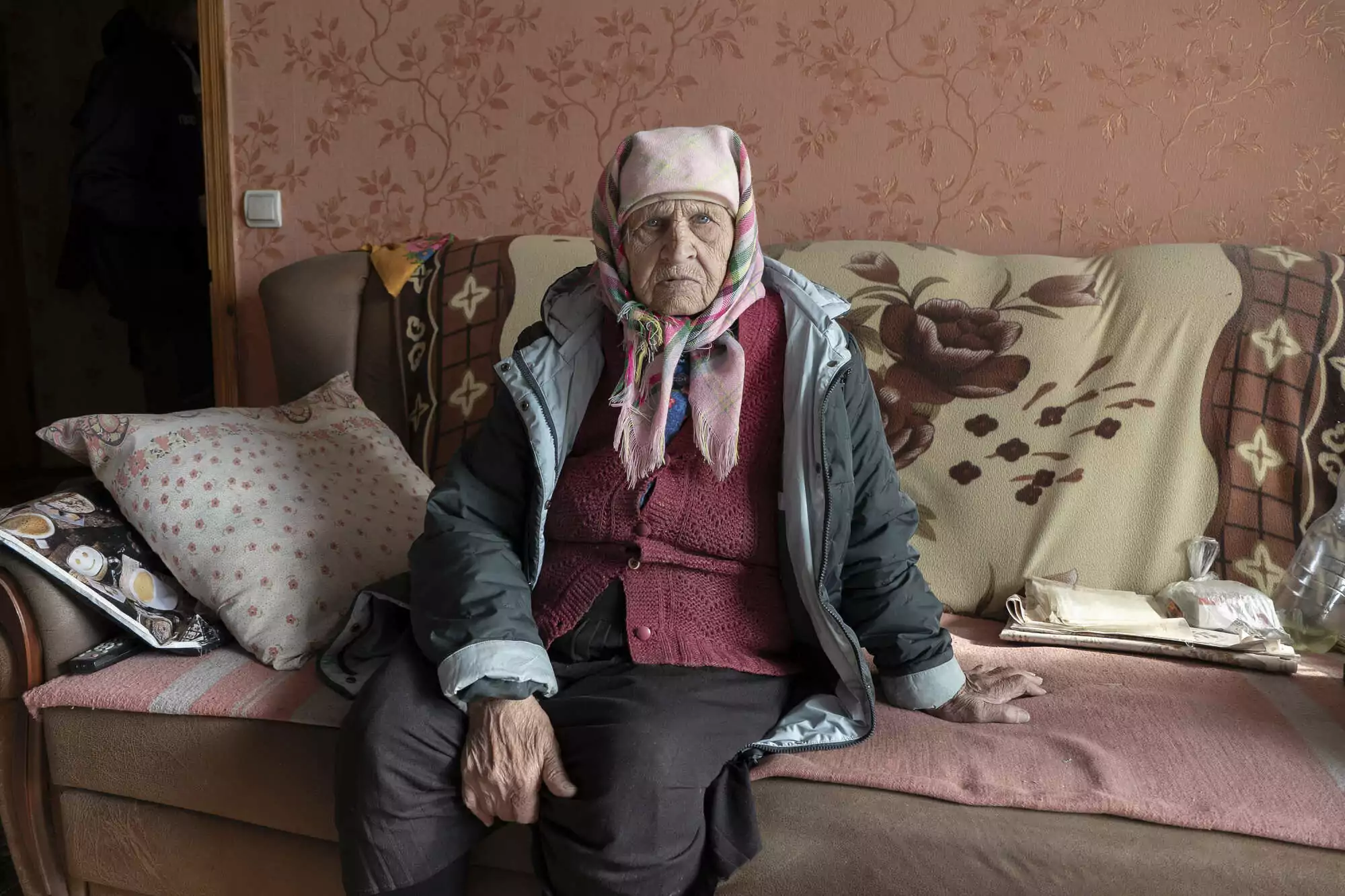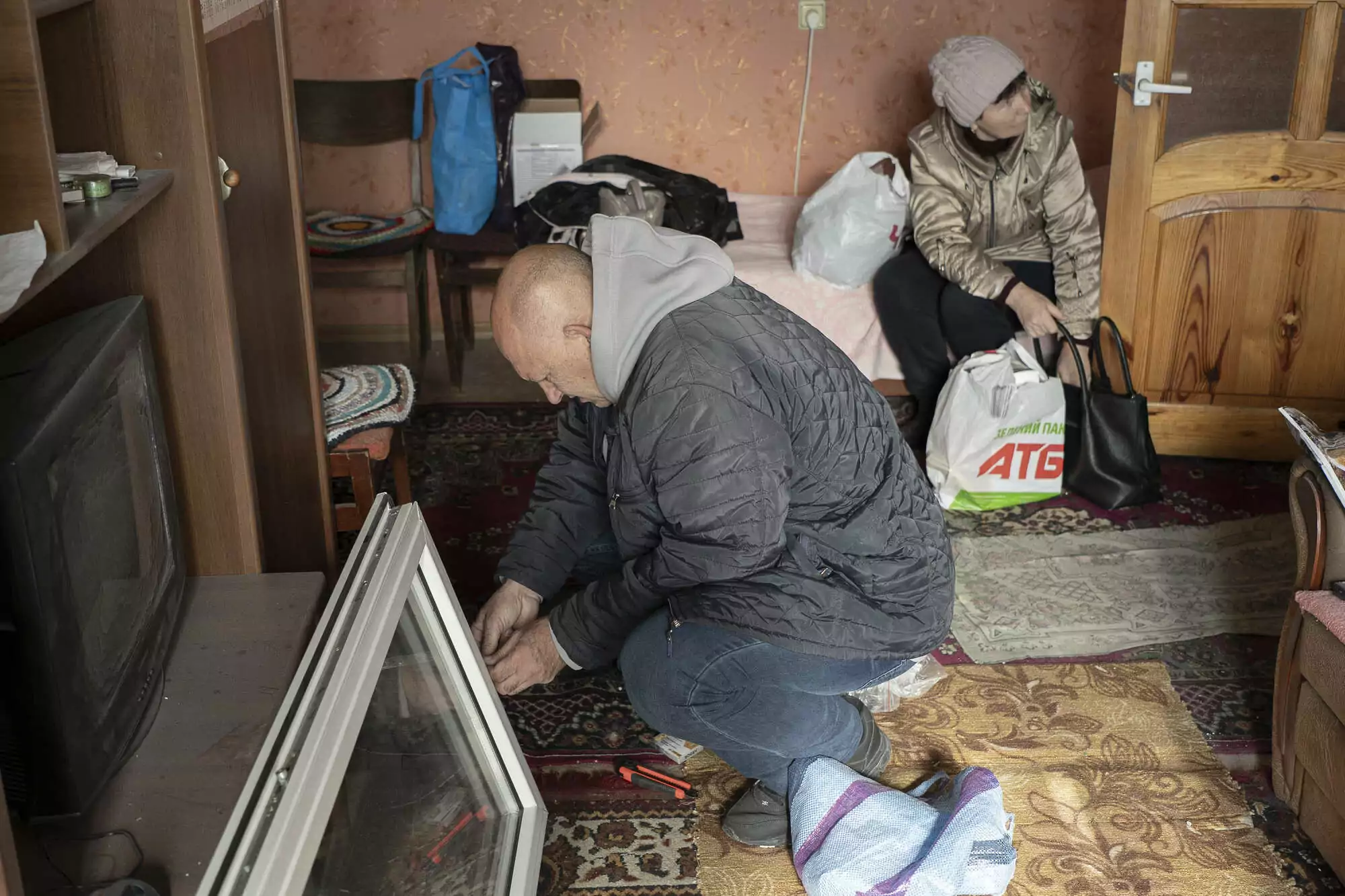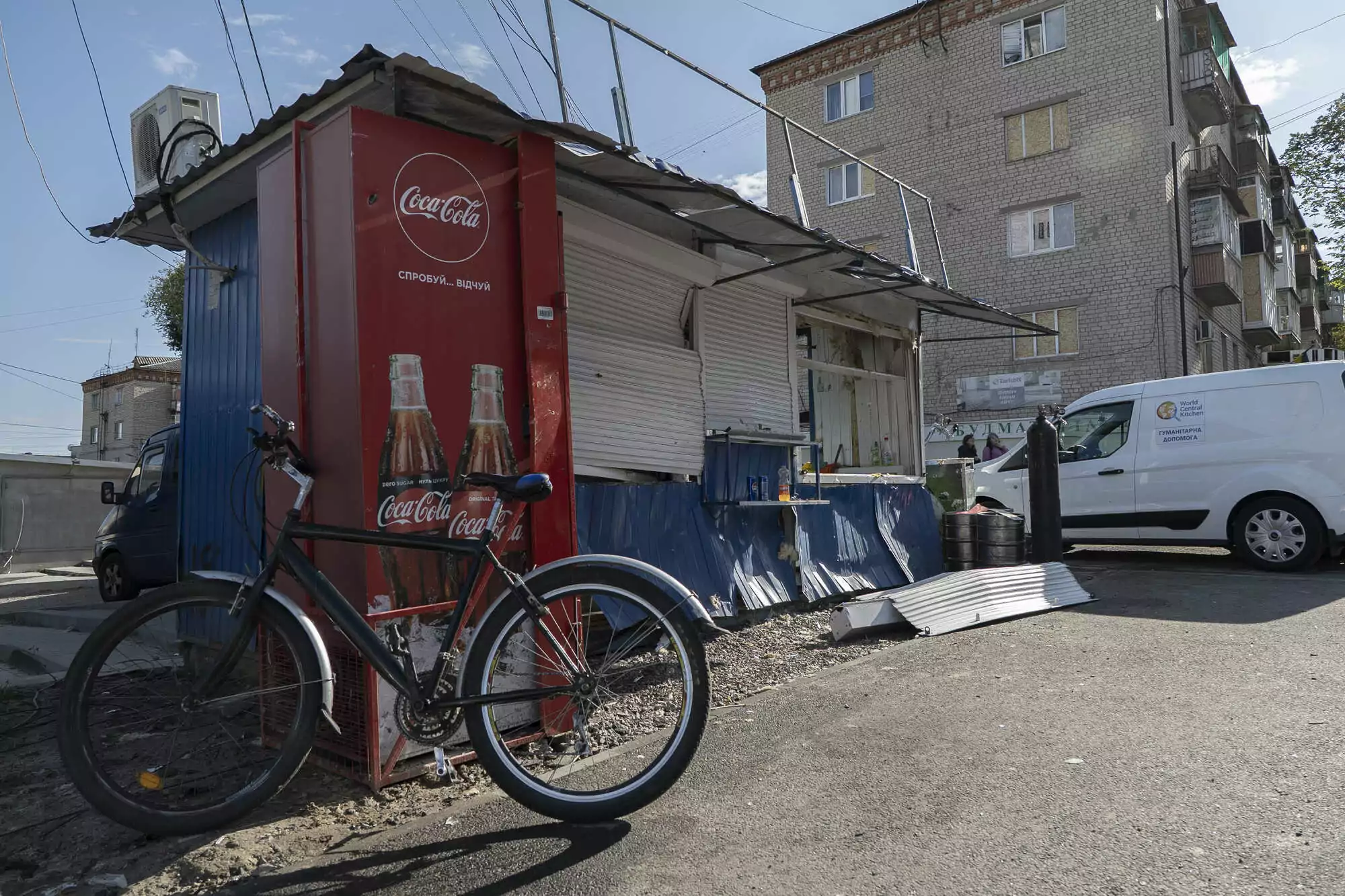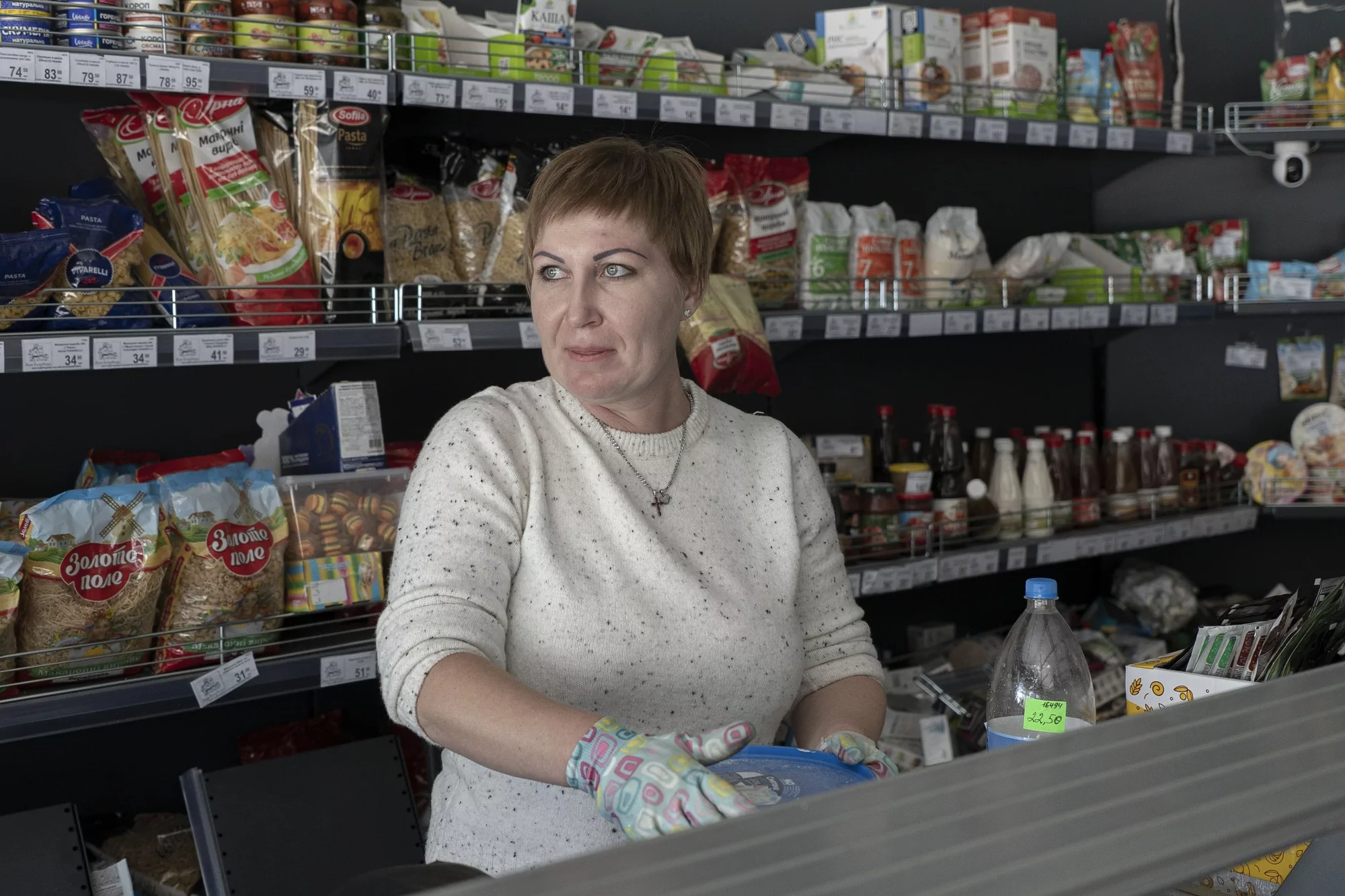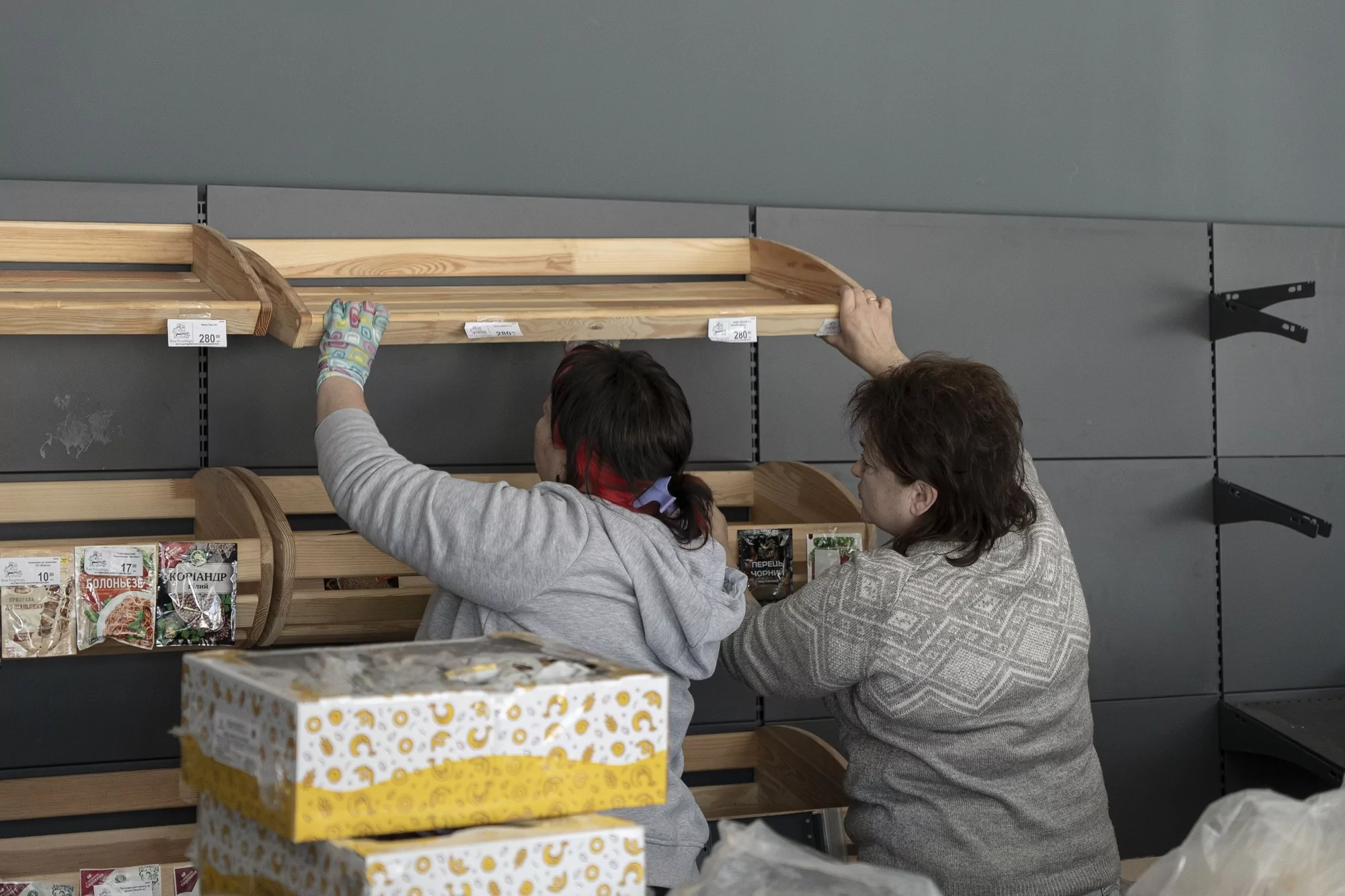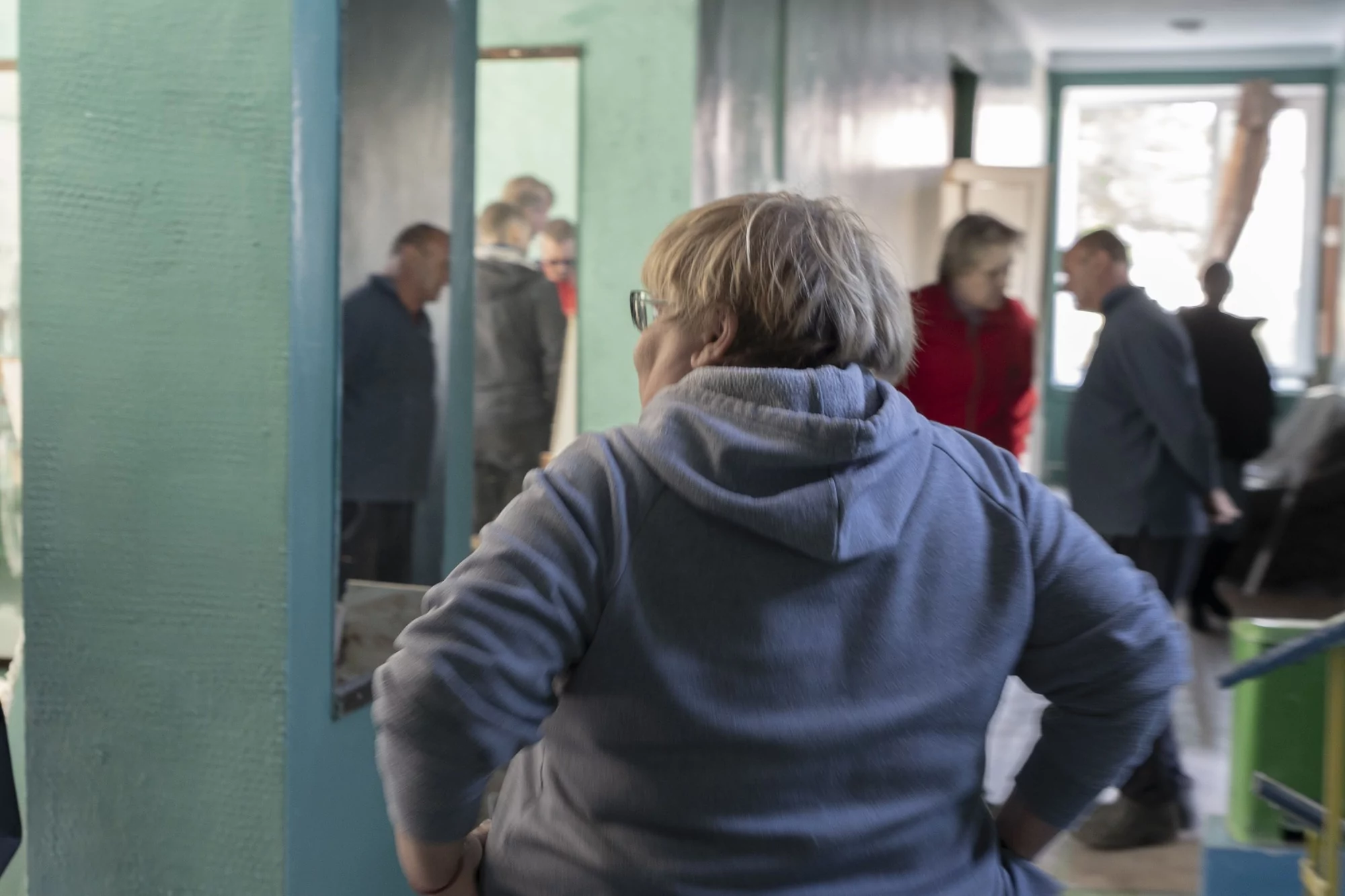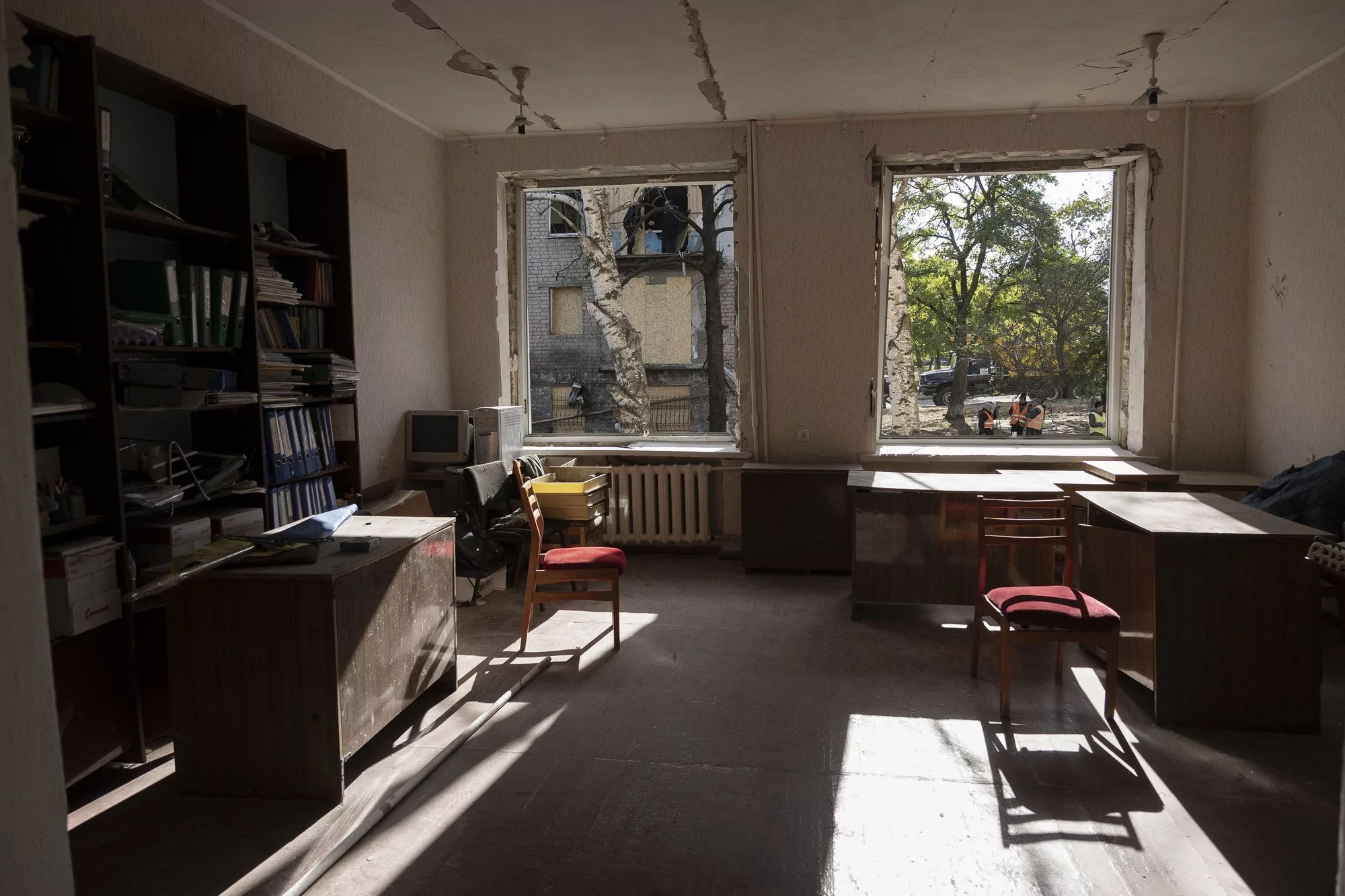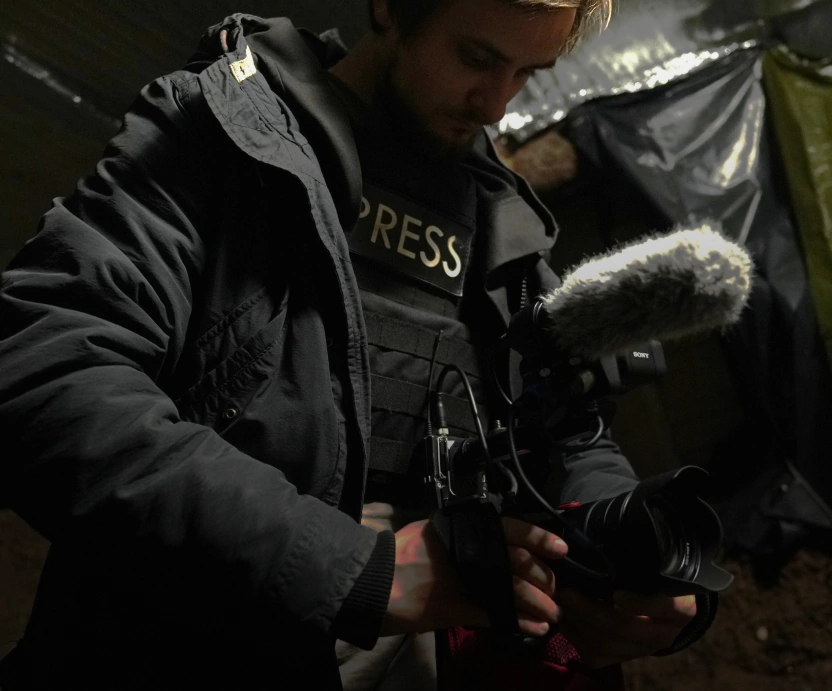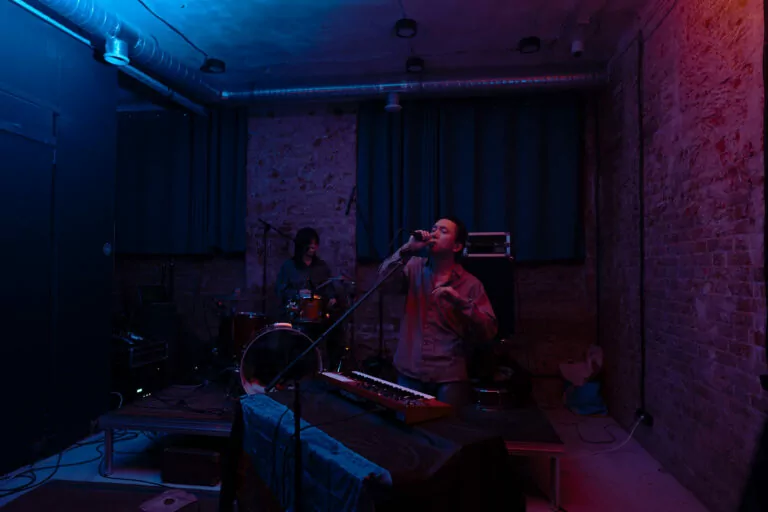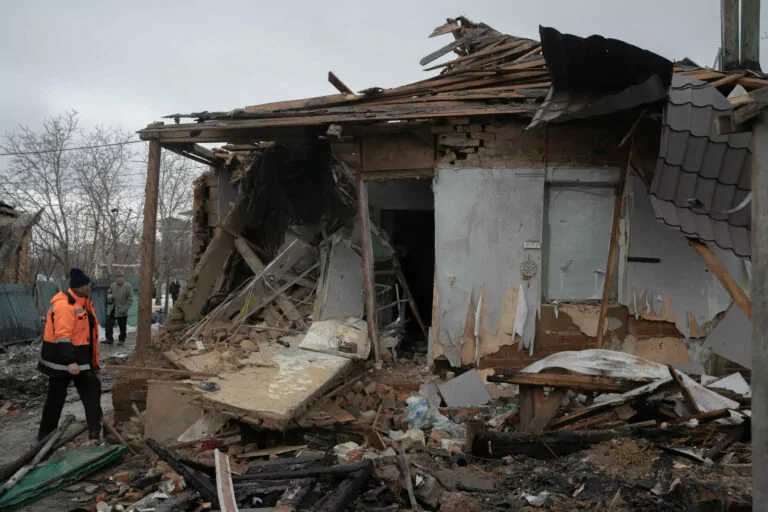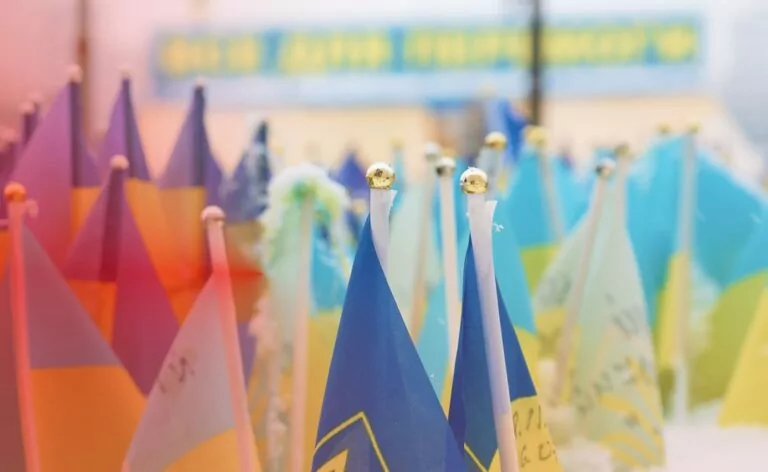UKRAINE, BALAKLIIA — The woman speaks to her son in the line for humanitarian aid, “The missile has hit, but your English homework still needs to be done.”
It’s a sunny autumn day, so people gather around the impact site to see the scale of destruction. Last evening, a Russian missile attack killed an 88-year-old woman and injured at least 16 people here. The missile hit directly between a 5-storey residential apartment building and a cafe, destroying them both and damaging all the buildings nearby.
Utility workers are cleaning up the debris left in the aftermath of the airstrike, filling the street with the sounds of shovels clanging and hammers striking as they work.
“If you think there is a lot of work here, you haven’t been here in the morning,” shouts one worker, gathering fragments torn from the apartment building, scattered around the impact crater. There, several people are standing at full height.
The man in the blue t-shirt, who wished to stay anonymous, watches municipal workers.
“I was cooking my dinner when a Russian strike hit,” he said. “You cannot understand it unless you have experienced it. ”
He stayed in his damaged flat without windows for the rest of the night. Utility workers — he calls them “kind people” — started helping locals right after the strike. He doesn’t plan to move unless the authorities declare his building unfit to live in. He hadn’t moved during the occupation of Balakliia in 2022, too — couldn’t leave his bedridden mother.
“Things felt clearer during World War II”
Many locals and their relatives go back and forth, packing things saved from destroyed flats into their cars. Others weren’t this lucky: their vehicles, parked near the building, were smashed or compressed into rubble by the blast wave.
To enter the building, people bow their heads to avoid the concrete slab hanging from a damaged wall. The explosion blew out front doors to all the flats here.
Amid the people passing her by in a hurry, an elderly woman is leaning on the banisters. She came here to check on her daughter’s apartment. “She moved from Ukraine in 2022, fortunately,” she said, brief, and didn’t want to talk more.
Noise comes from one of the doors on the fourth floor. It is barely attached to the wall. A large family is discussing how they will fix the window on the balcony. This is the apartment of 88-year-old Maria.
Minutes before the Russian strike, she went to bed adjacent to the wall, hidden behind the front door. It was 7 p.m. — her usual bed time. Thoughts about her children, grandchildren, and great-grandchildren filled her head — she has always remembered them before sleeping, — when the explosion hit, followed by darkness.
The blast wave knocked Maria out of bed. Unable to understand what had happened, the woman lit a candle. People were screaming on the street.
Maria didn’t know what to do, but heard a knock on the damaged door. Rescuers were already on site and helped her out of the building and called her grandchildren, who took Maria to theirs.
Now, she looks at a wooden cupboard with photos of her grandchildren in her flat and recalls her neighbours.
“Many people were injured, including Maryna, Tatiana, and Vera, and many others. And Alla Vorontsova was killed.”
88-year-old World Alla was first injured in World War II when she was a child. In 2025 the Russian missile strike took her life. Maria, too, lived through that war. Her speech slows with sadness.
“I survived World War II, and now the Russian invasion is happening,” she says. Back then, she believes, things felt clearer. “It had been dangerous on the frontlines back then, but calm in the rear. When a plane flew overhead, people would find a place to hide. Now, everything moves too fast, and my old legs can no longer find shelter quickly.”
Her granddaughter Svitlana, who has taken a break from cleaning the damaged apartment, interrupts Maria to find out if everything is okay.
In the bright kitchen, where Svitlana carefully washes every white tile that survived the impact, she says she has already taken her grandmother to live with her. Svitlana believes that everything will be restored and that it will be possible to live in this flat again.
“You can see that almost everything in the apartment is intact, so I think everything will be fine,” Svitlana says.
“Put the new one in the same place”
Evhenii leans against the wrecked car, observing the work around the building. The Russian missile also damaged his blue kiosk on the nearby market. The kiosk used to sell shawarma, а Turkish dish consisting of marinated, thinly sliced meat stacked on a vertical rotating spit and roasted for hours.
“What are we going to do?” he asks, his rough voice filled with optimism. “Of course, we’ll put a new one in the same place.”
Next to Evhenii’s kiosk is a large red grocery store, where the rumble of a generator and the sounds of people working can be heard.
Saleswoman Hanna is slowly restocking the shelves with products, but doesn’t have much time to talk.
“Soon, we’ll start trading again,” she says.
Hanna shares that Russia launched an attack just as the shop’s employees were going home.
She glances at the completely shattered glass panels that make up the front of the shop.
“Fortunately, there were no customers here; otherwise, the debris would have fallen on them,” Hanna remarks.
She and her colleague, who is now busy arranging bread on the shelves, were in the technical room at the back of the store, so thankfully, no one was injured.
“We will continue to work”
Dressed in sportswear and gloves, Maryna sweeps dust and pieces of glass from the blown out windows in a dark corridor. Around her, staff of the Center for Children and Youth’s Creativity move quickly — carrying broken doors, packing damaged equipment.
Maryna is a director of the center. Classes are now remote, but the team still comes in to work, she says. Utility crews haven’t arrived yet, so they’re doing everything themselves. From time to time, Maryna approaches her colleagues to check in and hugs them.
“We are working, and we will continue to work,” she says.
A week after the strike, Maryna told Gwara that thanks to help from the city of Izium, the windows in the center had been boarded up. Electricians had already connected the power, and plans to start heating the rooms are in the works. There was still a lot of work to be done, though.
“We will also send our employees to psychologists because they need to restore their life and creative resources,” says Maryna. No one was harmed physically during the attack, she explains, as the building was empty. She adds, “And we will not give up, not stop, we are optimistic. Because thanks to people like us, everything will hold together.”
Hi, I’m Nazar, the author of this article. We drove nearly 62 miles and spent hours with people in Balakliia to hear their stories — thank you for reading it and caring about what Russia does to Kharkiv oblast. Please, support our Kharkiv-based newsroom by buying us a coffee or subscribing to our Patreon.
Cover photo: Mykyta Kuznetsov, Gwara Media
Read more
- Russian forces attack Kharkiv, 7 settlements in region, injuring 3 people
